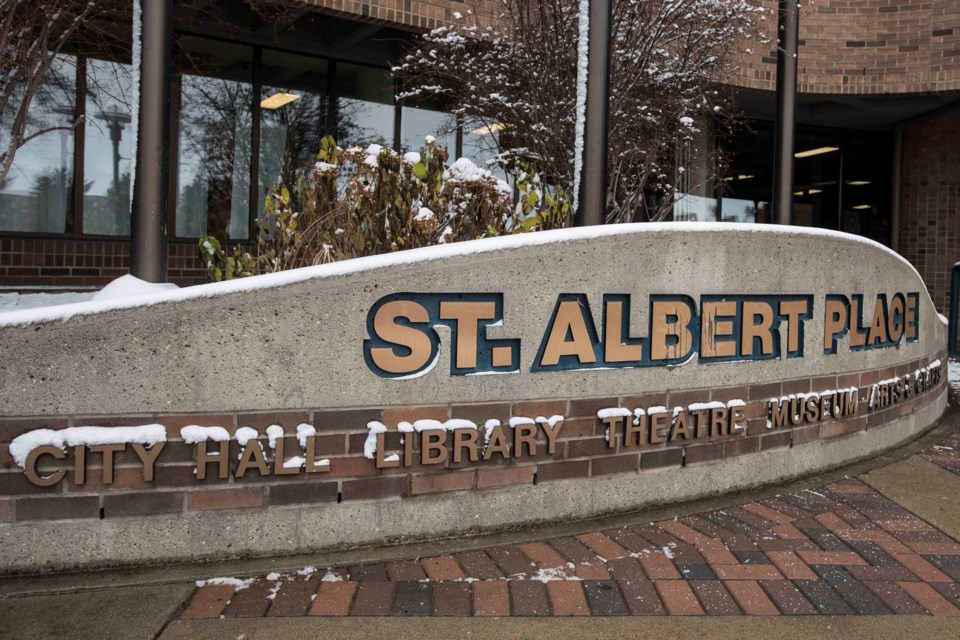St. Albert could bleed roughly $3.89 million due to the COVID-19 pandemic, a “best-case” scenario city council examined Monday afternoon.
“I don’t mean to sound like doom and gloom, but this should be considered probably a best-case scenario, because this is talking about facilities opening up June 1 and us being back to full speed June 1, which is not really reality,” St. Albert director of finance Diane McMordie McMordie told council in a Zoom videoconference meeting. “It’s going to take time to ramp up.”
The majority of money lost is anticipated to come from closure of St. Albert facilities and cancellation of programs and services, waived tax penalties, declined transit ridership and fewer bylaw and traffic tickets. In total, lost revenue from municipal operations is projected at $3.82 million.
That loss is offset by savings of $1.93 million, mainly realized through layoffs of non-permanent, hourly city staff.
Approximately 300 workers in areas spanning lifeguarding, childcare, fitness instructing, food service, theatre and guest services were given notice of temporary layoff March 17 and March 23, chief administrative officer Kevin Scoble said in an April 1 statement.
RELATED: St. Albert lays off 30 per cent of its staff temporarily due to COVID-19
Mayor Cathy Heron responded to a question on the layoffs in a written statement Tuesday, saying she empathizes with the temporary losses.
“These types of decisions are difficult and heart wrenching. And we can't wait to welcome back our staff in the near future,” she said.
McMordie noted council’s decision to defer utility and property tax payments will have a net zero impact by year’s end, and the cancellation of late fees was insignificant and excluded.
The final item contributing to St. Albert’s total estimated cost related to the pandemic is the price of the city’s response to COVID-19 itself.
After the WHO declared COVID-19 a pandemic, St. Albert activated its emergency operations centre (EOC). McMordie said costs to run the centre and incremental staff time, along with equipment needed throughout St. Albert “to limit exposure,” bring the total response cost to a net $2 million.
So far, council has authorized staff to spend $2 million for its COVID-19 response from St. Albert’s stabilization reserve, and McMordie said the city is burning through an average of $36,000 per day. After city council’s Monday meeting, the stabilization reserve was sitting at $2 million.
Administration will continue monitoring the pandemic situation and updating financial models, and will present various budget scenarios to council.
McMordie said in an email follow-up there will be additional costs beyond April that need to be dealt with as per the forecast.
"We will be reporting to Council regularly on current forecasts as we cannot expect Council to approve unlimited spending," she said.
Mayor expected “significant” blow from COVID-19
Heron said in an interview the $3.89 forecasted deficit was a “bit higher” than she hoped.
“We were always expecting that this was going to be a significant blow to our financial forecasts. So now we have a lot of work to do to figure out how we can recoup that and how we can talk to other levels of government to see how they can assist with that,” she said. “This is going to be obviously a national problem.”
The mayor said she thinks St. Albert will figure out how to cover the cost “without going out to the taxpayers,” and the city’s ability to deal with such a financial blow depends how long the pandemic goes on.
“The shorter the duration, the better,” Heron said, adding all residents will have a role on how long COVID-19 runs its course.
Federal cash needed
The Alberta government has already done what they can for municipalities, in terms of items like legislation changes, deferral of taxes and increased debt limits, according to Heron. Responsibility will really fall on the federal government to financially lend a hand to municipalities.
“They've already really stepped up and I don't know how much more they're gonna have,” Heron said about the Alberta government.
“The federal government has been backstopping businesses and helping out small, medium and large businesses. And I think they need to recognize that municipalities are similar and need that same kind of help."




